“It’s a cold night, I get it.” Hong Kong-based comedian Michael Dorsher eases into his routine at Dr. Panda Comedy Club sporting a red hoodie and jeans. Guangzhou is chillier than usual, a brisk 13 degrees Celsius and raining, but nothing that should keep fans home on a Saturday night. Yet at 9.45pm, the makeshift Paddy Field venue still hasn’t filled all 50 chairs.
“Look! I even reserved four in the front row for you,” Dorsher continues, gesturing to a group of stragglers. They trudge towards the seats, which are inches from the stage.
Judging solely by the turnout, it’s hard to believe stand-up is making headway on the mainland, though that is the consensus among veterans in the field.
Last year, Dr. Panda invited Ari Shaffir, host of the stand-up TV series This is Not Happening, to headline its first show. Tickets sold at a steep RMB200, but the event brought in over a hundred guests nonetheless, each eager to see the Comedy Central funnyman perform live. Shaffir outdid himself, preparing insider’s bits about muggy Guangzhou summers and Chinese kids with split pants. “I mean, how lazy do you have to be to pee without taking down your pants?” he joked. “No, I’d rather play… sh*t. Play… sh*t.”
Demand for comedy in China remains high. Expats desperately seek someone to narrate the torments of living abroad, while locals yearn for a relaxed, anonymous setting to let off some steam.
In the spring of 2014, Dorsher, an economics major, decided to meet that demand. Gathering a handful of fellow members from Comedy HK – a prominent standup club in Hong Kong that hosts the most free events and open mics – Dorsher took a train to Guangzhou to search for suitable venues. The back room of the Paddy Field proved just right: large enough for crowds but snug enough to make laughter contagious.
Two years later, Dr. Panda’s monthly comedy shows are a hit, especially during the holiday off-season, when English teachers are in school and businessmen are visiting the Canton Fair. “We usually won’t fly in an international comedian during August,” Dorsher adds. “Everyone’s away on break.”
Yet despite the positive response to comedy so far, Guangzhou still lacks a single club of its own, while Shenzhen’s Takeout Comedy group nearly dissolved last year when a key member returned home, zapping the tight-knit posse of comedians.
Today, most of Takeout’s expat members are on hiatus, choosing to pursue individual projects instead. Kevin Shu, who started doing stand-up in 2006, is one of the few who continues to hold regular open-mic events, though primarily in Mandarin. He also instructs locals in public speaking, including how to use humor in speeches.
“In the West, you just need to be funny, but in China, funny is not enough,” says Shu. “People will think you aren’t professional. A performance has to be structured.”
Back at the Paddy Field, Dorsher introduces the acts for the evening: Matt Horn of Guangzhou, Garron Chiu of Hong Kong and Daniel Ryan-Spaulding, a Canadian and the headliner of the night. The room is nearly full now. All eyes are locked on the stage, thirsty for more.
Watch Daniel Ryan-Spaulding below (VPN on):
The essential challenge of stand-up, regardless of where one performs, lies in the painfully intimidating art of making others laugh. It’s easy enough for the Amy Schumers and John Olivers among us, assuming their audiences share a similar sense of humor. But for traveling comedians in unfamiliar cities, the task becomes significantly more daunting.
“What crosses the line in one place won’t in another place. A lot of it depends on how young your audience is,” says comedian Daniel Ryan-Spaulding after the show.
“Tonight was a bit of a mixed group and more on the older side. Like in Beijing, my show was pretty much for people under 30 – all English teachers – and really starved for English comedy and Western humor, so I could be a bit filthier than I was tonight.”
Ryan-Spaulding, who now resides in Amsterdam, picked up comedy 10 years ago and has been performing around the world for the past five. He’s watched the number of comedians grow rapidly in China, as young people move there for work or a relationship and gravitate towards stand-up for the community it offers.
International audiences in China, he says, tend to be more socially sensitive than those in other Asian countries. Jokes that are glaringly racist, sexist or politically incorrect will bomb on the mainland, though a fair number of expat comedians are telling them anyway.
“I usually talk about the different cultural clashes I’ve had in my life, whether it’s dating a guy who’s German or having a neighbor who’s Dutch,” says Ryan-Spaulding. “I don’t feel comfortable being in China a week and then acting like an expert on the Chinese. The idea of trying to say something in a foreign language and the other person having no idea what you’re saying because you’re mispronouncing one word slightly… we can all relate to that.”
Comedians in the Middle Kingdom also toe the line of censorship. During the Dr. Panda Comedy show, at least three of the performers nodded teasingly at the rolling camera, spurting out words like ‘democracy’ and ‘firewall’ in a shrewd, playful tone.
Yet the fact that they joke about it – and audience members dare laugh – reflects the country’s softening political climate. Performers, including local comedians, are increasingly entertaining topics that were once entirely off-limits.
Ryan-Spaulding is a perfect example, being the first openly gay comedian to perform throughout China. During his act in Guangzhou, he selected a handsome member of the audience to tease throughout the show, posing as a “graceful gazelle” that had no choice but to be pursued by the “fierce lion” before him. The audience roared with applause when the two locked lips during the final scene. Chinese onlookers giggled along in disbelief.
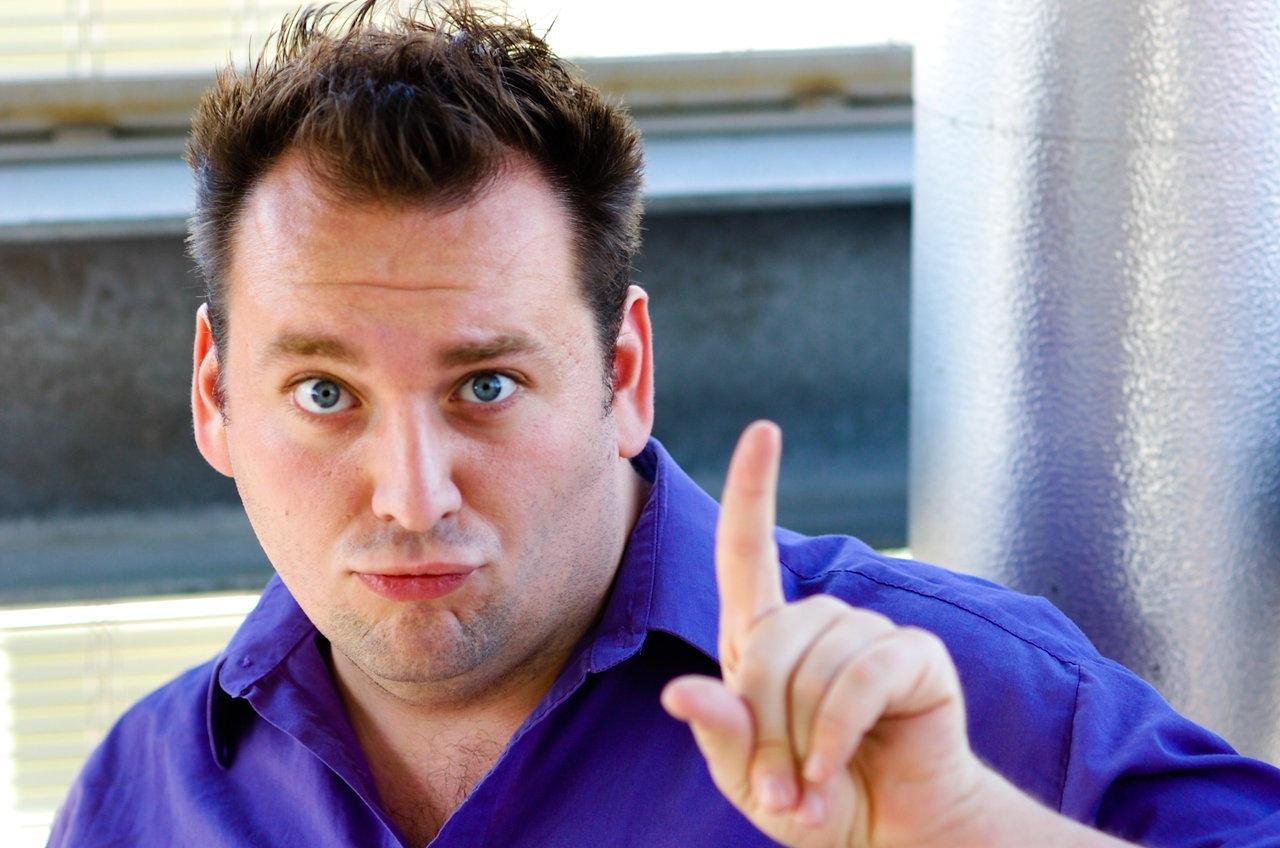
Satirizing public officials or the flag, however, especially in the wake of notorious anniversaries, is still not okay. In June of 2014, two officials dropped in on the Beijing Talk Show Club and reprimanded one of the comedians for cracking a joke about the Chinese flag, according to the New York Times article ‘Can China Take a Joke?’ published earlier this year. The line is there, but exactly where it lies (or when it applies) remains an intentional mystery.
Financial restrictions also limit the breadth of stand-up in China. Amateur comedians may be willing work for little or no profit, but famous headliners generally expect a hefty paycheck – one that self-sustaining clubs like Comedy HK and Takeout Comedy can’t afford to give.
“I usually put it to them like this: you can come to China, all expenses paid, and take the opportunity to travel,” Dorsher says. “If it’s right for them, it’s usually the right fit for us, and will make the whole week go much smoother.”
Ticket sales cover only a small portion of the cost of inviting a big-name comedian. If he or she happens to hail from the US, simply obtaining a Chinese visa requires more than RMB1,500.
Dorsher, to his credit, remains optimistic. He plans to bring Dr. Panda comedy shows to Shenzhen early next year, with a fresh lineup of international acts. There’s even talk of an online comedy workshop, which is set to be released around March. “I’m still working out the logistics,” Dorsher explains. “We want to make the course accessible to people without VPNs.”
Across the Pacific, stand-up is forging new connections to the mainland, as overseas Chinese delve into the peculiar art of puns and gags. In 2010, Joe Wong – a native of Jilin province with a doctorate in biochemistry and cell biology from Rice University – stood before Vice President Joe Biden and hundreds of distinguished guests at the annual Radio and Television Correspondents’ Association dinner. Playing off his quirky disposition, Wong addressed the crowd in Washington with cool confidence.
“In order to become an American citizen, we have to take these American history lessons, which asked questions like, ‘Who’s Benjamin Franklin?’ So we’re like, ‘Uh, the reason our convenience stores get robbed?’”
The crowd pauses a beat, interpreting the joke. Wong continues.
“And they ask, ‘What’s the second amendment?’ So we’re like, ‘Uh, the reason our convenience stores get robbed?’”
Waves of laughter ripple across the room as more people catch on. Wong’s accent is thick, but the inflection only adds to his delivery.
“Or they ask, ‘What is Roe v. Wade?’ and we’re like, ‘Uh, two ways of coming to the United States?’”
This time, the crowd – comprised of mostly white, upper-class professionals – goes wild, giving in to the deadpan, racist humor. Some shake their heads in surrender, smiling at the awkward irony of it all.
Within a week, Wong’s mailbox was practically breeding fan mail. He’d been pursuing stand-up under the radar for nine years, but after the RTCA dinner, people finally knew his name.
Watch Joe Wong below (VPN on):
It didn’t take long for the Chinese government to hear about Wong’s success, especially after a video of his performance – complete with Chinese subtitles – went viral on Youku.com. Wong was invited back the mainland to host his own weekly show on CCTV, which he began filming in 2013. The program Is It True? features Wong doing stand-up for a few minutes before investigating the truth behind Internet rumors and shoddy products – a Chinese Myth Busters of sorts.
Returning to China, however, turned out to be anything but comical. Wong faced an audience that knew of him, but didn’t share his Western sense of humor. Fame suddenly meant more than being funny.
There were new tricks to navigating show business in China as well. Large theaters required Wong to send in a script in advance, sometimes months before a show. If the management had a problem with any of his jokes, they were cut.
Even the word for ‘stand-up’ comedy was different. In Mandarin, ‘talk show,’ or tuokouxiu (脱口秀), is the closest translation, though it obviously also refers to a talk show (albeit a funny one).
Gradually, Wong sifted through the unfamiliar nuances, finding his niche. Instead of satirizing his ‘ethnic’ origins as he had in the US, Wong learned to joke about being an overseas Chinese returning to China – another stereotype conducive to parodying. Singing and dancing, which had previously seemed uncool in the States, now turned into a key element of Wong’s set. And for all the Western jokes that wouldn’t work on the mainland, there were some that became more acceptable once in China, like making fun of obese people.
“There’s definitely a chance for edgier humor in China,” said Wong in an interview with the Wall Street Journal this past March. “Recently I went to a few events and roasted some corporate CEOs and celebrities in China, and I found that Chinese people actually love to make fun of themselves nowadays.”
Garron Chiu, a comedian from Takeout and Comedy HK, has also grappled with the stark differences between his English and Cantonese routines. In the West, Chiu says the goal of stand-up is to optimize ‘laughs per minute’ – to make people laugh immediately, as much as possible, for as long as they can. But in China, a comedian can tell a slow, drawn-out story, and as long as there’s one laugh at the end, the audience will be happy.
“When I do stand-up in Chinese, people don’t laugh, they just clap. It’s like they don’t like to express with their mouth but with their hands. So it’s something you have to get used to.”
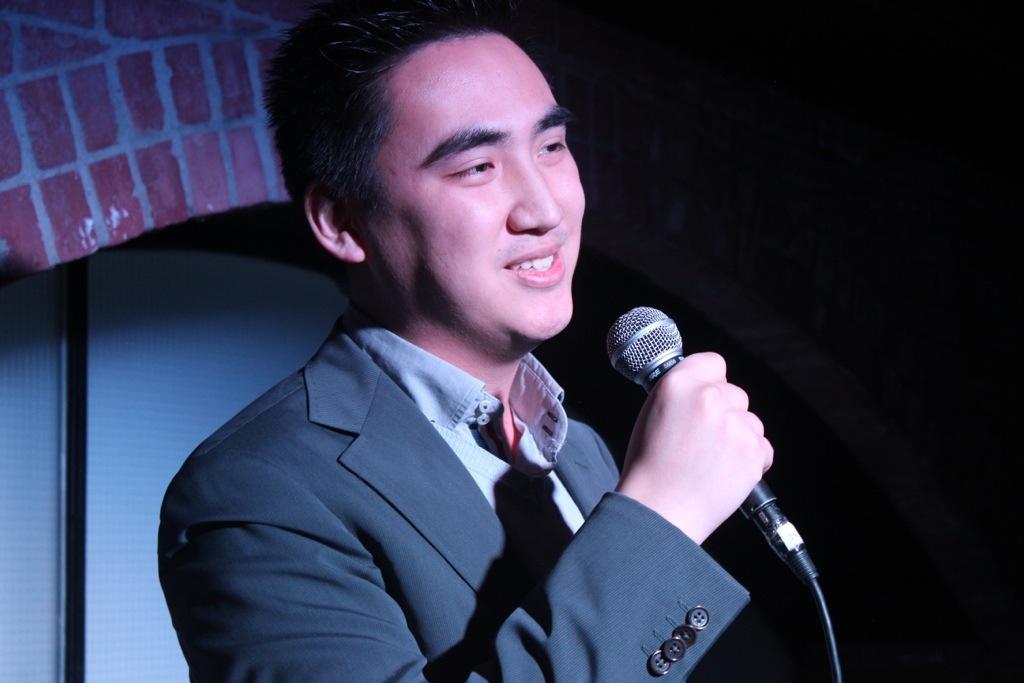
The first time Chiu performed for Chinese, he’d prepared an eight-minute routine in English, planning to translate it into Cantonese as he went. The set went perfectly, but when Chiu got off stage, a manager approached him and asked why he’d only done four and a half minutes.
“I forgot that speaking Chinese is much faster than speaking English, because every word is just one syllable,” Chiu laughs.
Going forward, Chiu predicts Chinese preferences will evolve, just as humor in the West transitioned from slapstick to sarcasm over the course of a century. Stand-up is already beginning to mesh with traditional Chinese crosstalk, as Hong Kong comedians incorporate puns and jingles into their routines.
Watch Garron Chiu below (VPN on):
Describing the art of crosstalk generally begins with the question of one’s familiarity with the sketch ‘Who’s on First?’ The reason, simply put, is that like Abbott and Costello, crosstalk often features two men, side-by-side, conversing in a rapid, bantering style with plenty of puns.
Unfortunately, China’s century-old art form is a tad more complicated. It can feature one, two or three comedians, though two is the most common. Translated literally as ‘face talk,’ crosstalk, or xiangsheng (相声), is the art of using one’s facial expressions and sound to entertain an audience. Four essential skills are employed: speaking (说), imitating (学), teasing (逗) and singing (唱).
Instead of playing oneself, a crosstalk comedian embodies a role on stage, whether imitating a greedy capitalist or a naive countryman. Satire is there, but subtle, and rarely offensive. The art form requires a vast knowledge of Chinese culture, as actors occasionally sing bits of Beijing opera, reference literary classics, play the kuaiban (快板) or mimic remote dialects.
Since crosstalk masters are not portraying their own opinions, many assume the art leaves little room for individual expression, but Li Jing, a renowned comedian from Beijing, disagrees.
“Xiangsheng is the most personalized form of art, I think. The same program performed by different comedians will reflect their respective styles. There’s room for opinion, as well.”
Li, like most crosstalk actors, studied under a mentor for years. He enjoys mixing xiangsheng with other genres, including theatrical plays or even acrobatic shows. The night of the Dr. Panda Comedy show, Li was on stage at the Guangzhou Opera House, spouting out crosstalk puns in the stage comedy One Night in Beijing.
Li’s fascination with mixing genres could be the way of crosstalk’s future, but traditionally a routine consisted of a man (or men) standing motionless on stage, gesturing only when necessary.
Crosstalk performances follow to a tee their scripts, some of which were written over a hundred years ago. Though the content has been altered significantly, the heart of many classic pieces remains the same – much like modern films that mirror the plots of Shakespeare’s plays.
Originating as a street performance during the Qing dynasty, crosstalk traces its roots to theaters and teahouses in Tianjin, Beijing and Nanjing. It’s said that Mao Zedong had a thing for the art, frequently inviting masters to perform in his home. As a populist art form, crosstalk had the backing of the Communist party – at least before the 60s – and helped propagate standardized Mandarin throughout the country, which in turn paved the way for its expansion into southern China.
“When standard Mandarin was pushed a few decades back, the language barrier for those living in the south became less pronounced,” explains Li, “so [southerners] can enjoy crosstalk now, which historically carries a thick northern accent.”
Nearly every Chinese has watched xiangsheng at least once before, whether during the CCTV New Year’s Gala or live at a local theater. Yet audiences remain split between those who enjoy modern material and those who prefer the untouched classics.

Guo Degang, one of the leading Chinese comedians today, is credited with refashioning crosstalk to appeal to young audiences reared in the Internet age. The Xiha Crosstalk Group, too, strives to incorporate popular topics into their routines, arguing that youth today aren’t interested in hearing tasteless old jokes. Both worry that crosstalk will struggle to attract new apprentices in the future.
In Li’s opinion, however, crosstalk isn’t going anywhere. The problem, he says, is that it’s spreading everywhere, and much too fast.
“As the Internet gets more advanced, performances are uploaded online almost instantly after we leave the stage. Before you know it, everyone’s seen it, through one media outlet or another. We have to constantly be creating new material, otherwise no one has an incentive to come to live theater.”
One of Li’s costars adds that China’s dearth of strict copyright laws exacerbates the problem. “If Broadway musicals were downloadable from YouTube, would people really pay USD100 to visit the theater?” he asks. “Probably not.”
Yet despite pressures from a modernizing society and new alternatives to humor, crosstalk continues to be China’s comical remedy of choice. While talk shows and witty skits gain ground, crosstalk clings to its status as a revered, traditional art, sharing the same esteem as Chinese painting or Cantonese opera. A crosstalk master dedicates his life to the practice, spending the first half acquiring techniques and the latter half passing on his knowledge. What he leaves behind – laughter – can’t be measured.
Perhaps Joe Wong described the arduous process best, when he so eloquently summarized the impression of a lifetime: “Life is kind of like peeing into the snow on a dark winter’s night. You’ve probably made a difference, but it is really hard to tell.”
Watch the award-winning short documentary, Comedy Comes to Canton, featured on China Chats in 2014 (VPN on):
READ MORE: Comic Relief: My Experience as a Newbie Comedian





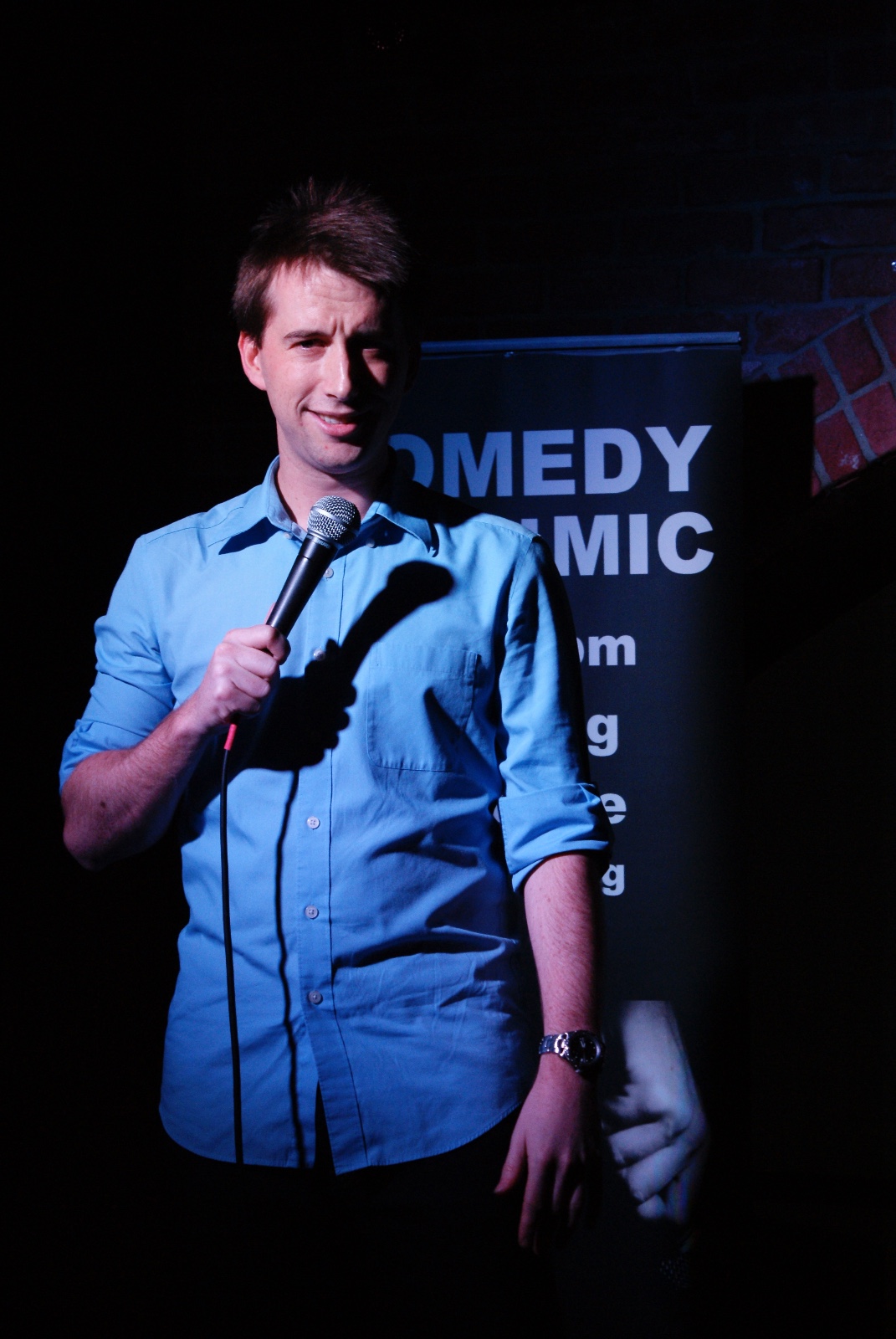
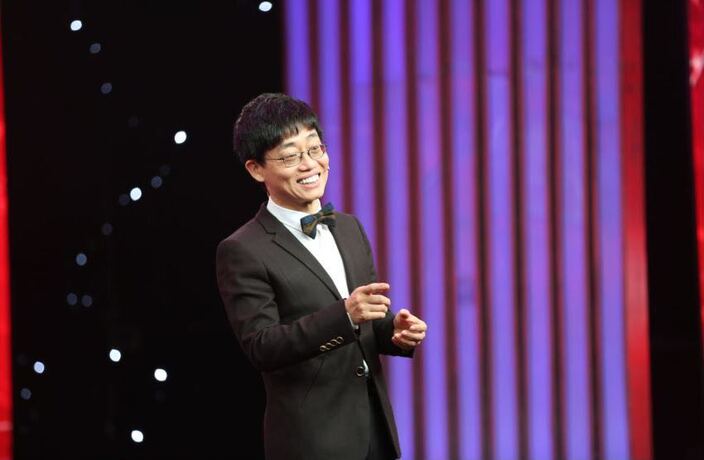
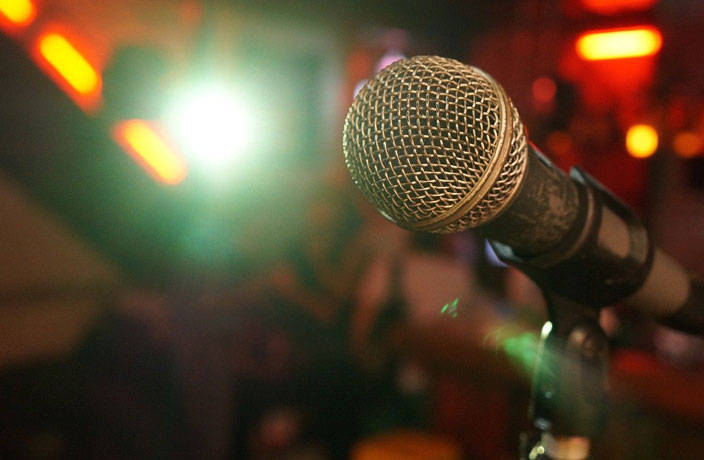















0 User Comments